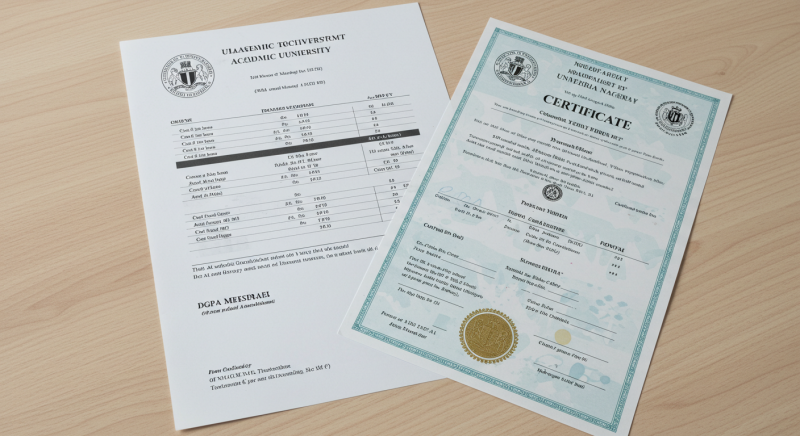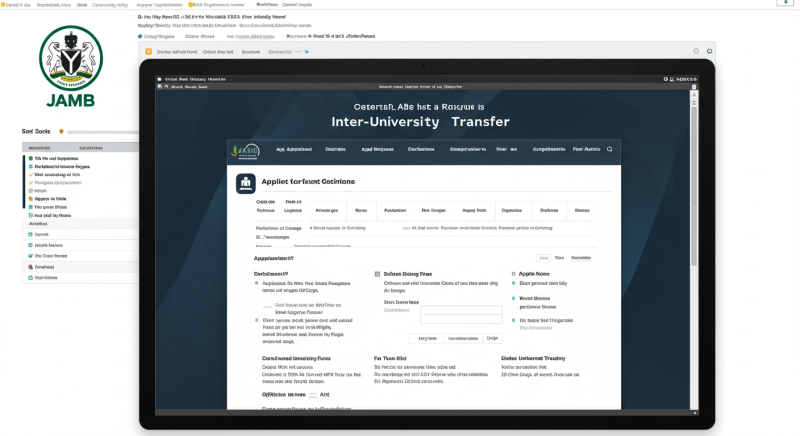“Your current university doesn’t define your future – sometimes a fresh start at a new institution opens doors you never imagined possible.”
When Adaeze realized her Computer Science program at her current university wasn’t meeting her career aspirations, she felt trapped. Like thousands of Nigerian students each year, she discovered that the path to academic fulfillment sometimes requires courage to make a change. If you’re reading this, you might be in a similar situation, wondering if it’s possible to transfer universities in Nigeria without losing precious time or academic progress.
The truth is, Nigeria’s educational system provides structured pathways for students to switch institutions mid-program, but navigating these processes requires understanding specific requirements and procedures. This comprehensive guide will walk you through everything you need to know about how to transfer universities in Nigeria, from understanding JAMB requirements to completing the application process successfully.
Key Takeaways
Understanding how to transfer universities Nigeria involves mastering several critical elements. You must maintain a minimum CGPA of 2.0 on a 5.0 scale, complete at least one academic year at your current institution, and possess a valid JAMB registration number that meets the receiving university’s cut-off marks. The process typically takes 2-4 months and requires obtaining clearance from your current university before applying to your desired institution through JAMB’s official portal.

Understanding University Transfer in Nigeria
When we talk about how to transfer universities in Nigeria, we’re discussing two primary types of transfers that students can pursue. Inter-university transfer involves moving from one university to another entirely different institution, while intra-university transfer means changing courses or faculties within the same university.
The National Universities Commission regulates these transfers to maintain academic standards across Nigeria’s educational landscape. With over 270 universities operating in Nigeria as of 2024, including 149 private, 63 state, and 62 federal institutions, students have numerous options when considering how to transfer universities Nigeria.
According to recent statistics from education authorities, approximately 15-20% of Nigerian university students consider transferring at some point during their academic journey. The most common reasons include seeking better academic programs, improved facilities, financial considerations, or personal circumstances that make their current institution unsuitable.
Essential Requirements for University Transfer
Before exploring how to transfer universities Nigeria, you must understand the fundamental requirements that all institutions typically demand. The academic performance requirement stands as the most critical factor – your Cumulative Grade Point Average must not fall below 2.0 on a 5.0 scale, though many competitive universities prefer candidates with 2.5 CGPA or higher.
Your JAMB registration number plays a crucial role in the transfer process. The score associated with this number must meet or exceed the cut-off marks for your desired course at the receiving university. For instance, if you’re transferring to study Medicine at University of Lagos, your JAMB score must align with their current admission requirements for that program.
Time requirements also govern how to transfer universities Nigeria. Most institutions require students to complete at least one full academic year before becoming eligible for transfer. This policy allows universities to assess your academic performance and commitment before recommending you to another institution.
Course compatibility represents another essential requirement. You can only transfer to the same course you’re currently studying or a closely related program. Universities rarely approve transfers to entirely different fields of study, as this could compromise your academic foundation and progress.
JAMB and University Transfer Process
The Joint Admissions and Matriculation Board serves as the primary gateway for students learning how to transfer universities in Nigeria. JAMB’s Inter-University Transfer system coordinates all movement between Nigerian universities, ensuring standardization and preventing academic fraud.
To initiate your transfer through JAMB, you must first create a profile on their official portal and complete the Inter-University Transfer application. The process begins with selecting your desired institution and program, followed by uploading required documentation including academic transcripts, clearance letters, and supporting documents.
JAMB charges a processing fee for transfer applications, typically ranging from ₦10,000 to ₦50,000 depending on the receiving university’s requirements. This fee covers administrative costs and ensures your application receives proper evaluation by both JAMB and your chosen institution.
The verification process involves JAMB confirming your academic records with your current university while simultaneously checking your eligibility against the receiving institution’s standards. According to the University of Nigeria Nsukka’s transfer guidelines, students must possess JAMB scores that meet current departmental requirements and cannot be admitted beyond second year level.

Step-by-Step Transfer Process
Learning how to transfer universities Nigeria requires following a systematic approach that begins with thorough research and planning. Start by identifying universities that offer your desired program and checking their specific transfer requirements, as these can vary significantly between institutions.
Your first concrete step involves meeting with your current university’s academic advisor or registrar to discuss your transfer intentions. This meeting helps you understand your academic standing, identifies any outstanding obligations, and initiates the clearance process. Many universities require students to clear all financial obligations and return borrowed materials before issuing transfer clearance.
Next, gather all required documentation including your academic transcripts, JAMB registration slip, birth certificate, and any other documents specified by your target university. Ensure all documents are certified true copies, as universities typically reject photocopies or unclear documentation.
The application submission phase requires careful attention to deadlines, as most universities process transfers only during specific periods each academic year. Submit your application through JAMB’s portal while simultaneously forwarding required documents to your chosen university’s admissions office.
After submission, monitor your application status regularly through JAMB’s tracking system. The evaluation process typically takes 4-8 weeks, during which both institutions review your academic qualifications and available space in your desired program.
Documentation and Requirements
Understanding how to transfer universities Nigeria means preparing comprehensive documentation that meets both JAMB and university-specific requirements. Your academic transcript represents the most critical document, as it provides evidence of your academic performance and completed course credits.
Your JAMB registration slip and result must demonstrate scores that meet your target university’s current admission standards. According to Nile University’s transfer policy, candidates need a minimum CGPA of 1.50 (3rd class) on a 5.0 scale, though most competitive programs require higher standards.
Clearance documentation from your current university confirms that you’ve met all academic and financial obligations. This clearance typically includes confirmation of completed semesters, paid fees, and returned university property such as library books or laboratory equipment.
Supporting documents may include recommendation letters from academic staff, personal statements explaining your reasons for transfer, and medical certificates if your transfer relates to health considerations. Some universities also require evidence of financial capability to complete your studies at the new institution.
Common Challenges and Solutions
Students learning how to transfer universities Nigeria often encounter specific challenges that can delay or complicate their applications. Academic credit transfer represents one of the most significant hurdles, as receiving universities may not accept all credits from your previous institution, potentially extending your graduation timeline.
Space availability poses another common challenge, particularly for competitive programs or popular universities. According to education sector reports, limited capacity means many qualified transfer applicants face rejection despite meeting all requirements. The solution involves applying to multiple institutions simultaneously and considering alternative programs that align with your career goals.
Financial considerations often complicate transfer decisions, as changing universities may involve different fee structures, relocation costs, and potential loss of scholarships. Research comprehensive costs before committing to transfer, including tuition differences, accommodation expenses, and living costs in your new location.
Documentation challenges frequently arise when universities have different academic record formats or when students lack proper clearance from their current institutions. Address these issues by working closely with both institutions’ administrative offices and ensuring all paperwork meets specified requirements.
University-Specific Requirements
Different institutions have unique policies governing how to transfer universities in Nigeria, making research essential before beginning your application. Federal universities typically follow standardized NUC guidelines but may have additional requirements based on their specific academic focuses and capacity constraints.
Private universities often have more flexible transfer policies but may require higher CGPA standards or additional assessments. State universities usually prioritize students from their respective states, though they accept transfers from other regions based on merit and space availability.
The University of Lagos transfer guidelines demonstrate how institutions structure their requirements around specific timelines and eligibility criteria. Students must complete applications within designated periods and meet faculty-specific standards that may exceed general university requirements.
Professional programs such as Medicine, Engineering, and Law typically have more stringent transfer requirements due to accreditation standards and limited clinical or practical training opportunities. These programs may require additional examinations or interviews as part of the transfer evaluation process.
Timeline and Deadlines
Mastering how to transfer universities in Nigeria requires understanding the temporal aspects of the process, as timing significantly impacts your success chances. Most universities process transfer applications during specific windows, typically between May and August for the following academic session.
The complete transfer process usually takes 3-6 months from initial application to final admission confirmation. This timeline includes document preparation (2-4 weeks), application submission and review (6-8 weeks), institutional evaluation (4-6 weeks), and final admission processing (2-4 weeks).
Early preparation proves crucial for successful transfers, as late applications often face rejection regardless of academic qualifications. Begin your transfer research and documentation gathering at least one semester before your intended transfer date to allow adequate time for all required processes.
Some universities offer mid-semester transfer opportunities for exceptional cases, particularly when students face serious personal or academic challenges at their current institutions. However, these transfers are rare and typically require compelling justification supported by appropriate documentation.
Financial Considerations
Understanding the financial implications represents a crucial aspect of how to transfer universities Nigeria. Transfer students often lose scholarships or financial aid tied to their original institutions, requiring alternative funding arrangements for their continued education.
Universities charge various fees for processing transfer applications, ranging from ₦25,000 to ₦100,000 depending on the institution and program. Additional costs may include document verification fees, medical examinations, and administrative charges that can significantly impact your educational budget.
Tuition differences between institutions can substantially affect your total educational costs. Private universities typically charge higher fees than public institutions, while specialized programs may have premium pricing regardless of university type. Research these differences thoroughly to avoid financial surprises after transfer approval.
Relocation expenses including transportation, accommodation deposits, and living cost variations between different cities or states add complexity to transfer financial planning. Create comprehensive budgets that account for all potential expenses associated with changing institutions.
Academic Credit Transfer
Successfully navigating how to transfer universities Nigeria often depends on maximizing academic credit recognition at your new institution. Universities evaluate transfer credits based on course content similarity, academic rigor, and accreditation standards of your previous institution.
Credit evaluation typically occurs after admission approval, when academic departments review your completed coursework against their curriculum requirements. Some courses may receive full credit recognition, while others might require supplementary examinations or additional coursework to meet new institutional standards.
Grade point average calculations may change when transferring, as different universities use various grading scales and credit weight systems. Your CGPA at the new institution typically starts fresh, though some universities incorporate previous academic performance into their evaluation processes.
Course sequencing becomes important when credits don’t transfer perfectly, as you may need to complete prerequisite courses before advancing to higher-level classes. This situation can extend your graduation timeline, making careful academic planning essential for timely program completion.

Success Tips and Best Practices
Maximizing your chances of successfully learning how to transfer universities in Nigeria requires strategic planning and meticulous attention to detail. Start by researching multiple universities simultaneously, as this approach increases your acceptance probability and provides backup options if your first choice doesn’t work out.
Maintain strong academic performance throughout your transfer planning period, as universities evaluate your most recent transcripts during the application review process. A declining GPA can jeopardize even well-prepared applications, while consistent academic excellence strengthens your candidacy.
Build relationships with faculty members and academic advisors who can provide recommendation letters and guidance throughout the transfer process. These professional connections often prove invaluable when navigating complex institutional requirements or addressing unexpected challenges.
Prepare compelling personal statements that clearly articulate your reasons for transferring and demonstrate how the new institution aligns with your academic and career goals. Universities appreciate students who show genuine interest in their programs rather than those seeking transfers for convenience alone.
Frequently Asked Questions
Can I transfer universities Nigeria with a 2.0 CGPA? Yes, many universities accept transfer students with a minimum 2.0 CGPA, though competitive programs typically require higher standards. Your JAMB score and course availability also influence admission decisions beyond CGPA requirements.
How long does the university transfer process take in Nigeria? The complete process typically takes 3-6 months from application submission to admission confirmation. However, preparation time for documentation and research can extend the overall timeline to 6-8 months.
Do I need to take JAMB again to transfer universities Nigeria? No, you don’t need to retake JAMB for university transfers. Your original JAMB registration number and score remain valid, provided they meet your target university’s current admission requirements for your desired program.
Can I transfer to a different course when changing universities? Generally, universities only approve transfers to the same course or closely related programs. Changing to completely different fields typically requires starting as a fresh applicant rather than a transfer student.
Will I lose academic credits when I transfer universities Nigeria? Credit recognition varies by institution and program compatibility. Some credits may transfer fully, while others might require supplementary coursework or examinations. This evaluation occurs after admission approval.
What is the cost of transferring universities in Nigeria? Transfer costs include application fees (₦25,000-₦100,000), documentation charges, and potential tuition differences between institutions. Additional expenses include relocation costs and possible scholarship losses.
Conclusion
Learning how to transfer universities Nigeria represents a significant academic decision that requires careful planning, thorough research, and strategic execution. The process, while complex, offers students valuable opportunities to find institutions that better align with their academic goals, career aspirations, and personal circumstances.
Success in university transfer depends on understanding and meeting specific requirements including minimum CGPA standards, JAMB score compatibility, proper documentation, and institutional deadlines. Students who approach the process systematically, maintain strong academic performance, and prepare comprehensive applications significantly increase their chances of successful transfer.
The Nigerian higher education landscape provides numerous opportunities for motivated students willing to navigate the transfer process effectively. With over 270 universities offering diverse programs and specializations, students can find institutions that better match their educational needs and career objectives.
Remember that transferring universities represents just one path among many educational options. Whether you ultimately decide to transfer or remain at your current institution, focus on maximizing your academic potential and building the skills necessary for your chosen career path. The knowledge and experience gained from researching how to transfer universities Nigeria will serve you well regardless of your final decision.
Your educational journey is unique, and sometimes finding the right institutional fit requires courage to make changes. By following the guidelines and strategies outlined in this comprehensive guide, you’re well-equipped to make informed decisions about your academic future and take confident steps toward achieving your educational goals.
read more Trademark Protection for Nigerian Agricultural Products: How to Secure Your Brand in 2025
